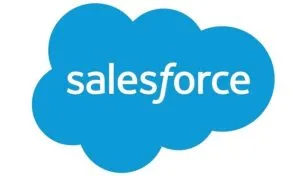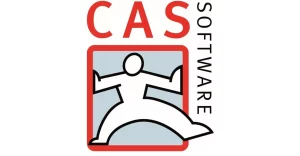At the beginning of August this year, it was clear that Oracle was laying off several thousand employees. In some cases, figures of up to 10,000 of a total of 143,000 employees were reported. Many different sources referred to reports from the English-language news portal “The Information” and to conversations or statements on social media from (ex-)employees of Oracle.
This is certainly a dilemma, which is not entirely surprising, since the majority of employees who are or were employed in Oracle’s marketing cloud environment are being laid off. Many of the employees are venting their anger on the Internet. The anger runs deep.
Why do employees from the marketing cloud environment in particular have to leave?
For many years, Oracle has been trying in vain to establish a successor product for Siebel CRM on the market, but the solution never really got off the ground. Many Oracle Siebel customers have since switched to other products from other manufacturers.
In addition, there is the attempt to establish a marketing cloud – comparable to Salesforce or Adobe. But this endeavor, too, as can be said in the meantime, has failed miserably. Various sources speak of a misinvestment of around $4 billion.
Hire&Fire – or make me Larry!
I don’t want to lose many words here about the way Oracle dismisses its employees. The word “shabby” probably still describes this very kindly.
The departure of Stefanie Kemp, the head of the German business, can certainly be seen in this context. Barely 2 years in office, she recently announced her move to Sana Clinics.
Oracle’s own size and the eternal pressure from the owner for further growth falls at its feet. Oracle most recently bought HealthCare specialist Cerner for a lot of money ($28.3 billion). In retrospect, this was probably already the backlash to the failed marketing cloud and AD business. That’s how you know Larry Ellison. Hair-trigger. Sometimes to the left, sometimes to the right.
Exciting in the context of the Oracle story, however, are other reports
Focus 1 Salesforce
CRM industry leader Salesforce reports “kicking the brakes”. Marc Benioff is quoted by CIO.de as saying, “Customers are becoming more thoughtful in their buying behavior,” Salesforce founder and co-CEO Marc Benioff said. “Sales cycles can get longer.” Add to that the fact that deals are being vetted by higher levels of management. “Virtually everyone I’ve talked to is taking a more measured approach to their deals,” the executive noted.”
In bare numbers, that means Salesforce is revising its full-year forecast (fiscal year-end is Jan 2023) downward.
New employee hires will be made more cautiously, real estate space will be sublet on a large scale. The latter is no longer a surprise in the times of “hybrid working” anyway, but a logical consequence of the actual situation.
We also had a few pitches last year in which Salesforce was involved, but didn’t always succeed. Has Salesforce perhaps also grown too quickly and/or is the high-priced licensing strategy one of the reasons?
Focus 2 More tech groups impose hiring freezes
SAP, Google and Meta are not hiring new employees at the moment. The tech giants are reacting to economic uncertainties and want to hold back on expanding teams.https://www.inside-it.ch/tech-konzerne-werden-vorsichtig-bei-neueinstellungen-20220721
Focus 3 Google and Microsoft are now also saving on personnel
The “R” word (recession) is going around: Worried about a recession – and not just in the U.S. – tech giants Google and Microsoft are now also putting the brakes on costs. They are slowing down the build-up or reducing their workforce. At Google (164,000 employees), there is talk of a hiring pause and “less growth than planned.” At Microsoft, according to Manager Magazin, there is speculation of 1% reductions from the slightly over 180,000 employees. That sounds like a lot in absolute terms at first, but in the context of scale, these are quite common corrections.
Declining industry trend or simply normal corrections?
On the other hand, there are still companies that are focusing on growth and hiring employees. This, as the crisis in 2008 showed, can certainly prove its worth. Those who invest especially in times of crisis usually come out of the crisis stronger.
Who is currently still offering jobs was revealed in a post on LinkedIn in response to the Oracle news. There, an employee of software manufacturer Workday published a long list of job offers.
From conversations with German manufacturers or service providers, we are still hearing sunny signals. Capacities are fully booked for months. Software developers and project managers are desperately sought.
Conclusion: It remains to be seen whether it will remain a mild cold in the market. Is it possibly even only a regional, at Oracle even home-made dent? If the industry or the global economy catches a cold, then it will certainly take on other dimensions.
Every 2nd Wednesday, you can find all the news about the software vendors in our CRM-TECH.Flaschenpost.










 CAS Software AG ist Marktführer für Kundenbeziehungsmanagement (CRM) im deutschen Mittelstand. Ob Marketing, Vertrieb oder Service – Anwender profitieren von effizienten Prozessen auf einer einheitlichen Datenbasis.
CAS Software AG ist Marktführer für Kundenbeziehungsmanagement (CRM) im deutschen Mittelstand. Ob Marketing, Vertrieb oder Service – Anwender profitieren von effizienten Prozessen auf einer einheitlichen Datenbasis.





